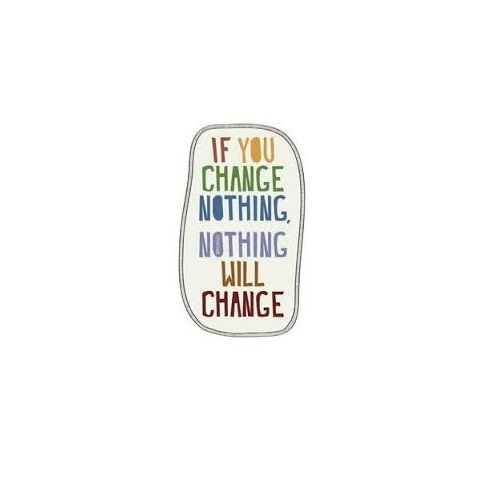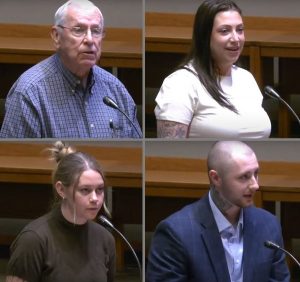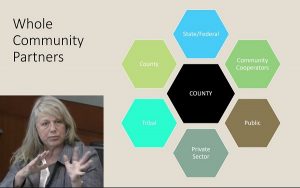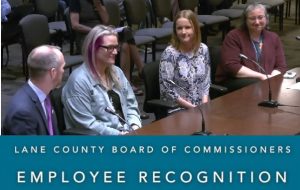Civil disobedience: Breaking the law to change the law
4 min read
Jenah’Eve Hartman: Some modern governments are based on the idea, ‘Do no further harm.’ The United States is not one of those governments. While the E.U. is based on the precaution principle and subsidiarity, the U.S. still runs the top-down system created for slaveowners. Trying to turn that around, community rights activists are looking at civil disobedience.
[00:00:20] Community Rights Activist 1: In our work of community rights, to really get to the structural change that we believe is necessary, we’ve tried to see common themes between movements, and what we have, I think, recognizes that all have had some element of civil disobedience, in shorthand terms: Breaking the law to change the law. So that has been common throughout any sort of movement. And so as we’re looking at our world today and trying to get the deeper structural change we’re after, from a movement orientation, how would you define civil disobedience?
[00:00:52] Jenah’Eve Hartman: Here are some community rights activists.
[00:00:55] Community Rights Activist 2: When you have well-settled law that says corporate activity is legally authorized and you say, ‘But it’s unjust,’ then you are literally going against the law. It’s against the law to fight for yourself—in our case, with the aerial spray ban. It’s legal to spray poisons from helicopters onto people and earth. We think that’s unjust. And so we are disobeying the law by proffering a new law that would say, ‘You can’t do that.’ That would be illegal. What you do is illegal and we have the right to call out your behavior and make what we think is right authorized law,
[00:01:37] From just a basic community rights framework, we’re engaged in civil disobedience through lawmaking, acknowledging that laws are unjust and in order to fight for what’s right, you have to go against the law and write laws that protect our rights and the rights of nature.
[00:01:57] Jenah’Eve Hartman: Thoreau and Susan B. Anthony wrote on civil disobedience. It was further developed by Mahatma Gandhi, and Dr. Martin Luther King, Jr. Here are thoughts of more community rights activists.
[00:02:09] Community Rights Activist 3: I was thinking about the Valve Turners in that they went out and cut the chains and shut down. I mean, they even told the companies, they were doing this, but shut down the flow of oil and their defense was that letting that go on as it was, was more wrong and scary and destructive than breaking the law to do that. And that, that really impacted me. I thought that was really powerful.
[00:02:37] Community Rights Activist 4: We all never really thought about our petitions, being an act of civil disobedience or at least my local group, didn’t, we thought civil disobedience is like the Valve Turners or the people blockading trucks and that kind of thing. But you know, the lawmaking from our local self governance stance is a civil disobedience. And they don’t want us there. And they, and so many people don’t even know that we have that right to make local laws and yeah, so they do everything they can to stop us from trying to do that.
[00:03:16] Community Rights Activist 5: The way I understand civil disobedience in the context of our initiatives, is the fact that we know that that authorities are going to turn us down, even if we win an election. We know that ahead of time because of preemption laws and what we’re trying to do there is just show, show the public how totally violating of our rights preemption laws are. And so the very fact that we do an initiative is civil disobedience because we know that they’re not going to accept it. That preemption makes that illegal.
[00:03:54] Community Rights Activist 6: It feels like civil disobedience, just to exercise your freedom of speech. Participating in government is an act of civil disobedience because they don’t want you there.
[00:04:07] And although they have not passed any laws saying we can’t be there, they have created a structure and they’ve put the meetings at such times, that makes it incredibly difficult to be there. So the act of going and participating, it feels like an act of civil disobedience and they make it so incredibly difficult and you have to be incredibly courageous.
[00:04:33] I’m a pretty bold person. And there have been times that my hands were shaking, my voice would crack. And it was just I had to just screw up my courage and do it again. And each time I did it it was just very difficult to speak out, but I would just do it over and over and over because I wouldn’t let them beat me.
[00:04:55] Jenah’Eve Hartman: You can learn more about civil disobedience at the Eugene Public Library. Check out Henry David Thoreau, Susan B. Anthony, Mahatma Gandhi, and Martin Luther King.
[00:05:05] This is Jenah for KEPW Eugene Peace Works Radio.



